
The rotifers, commonly called wheel animals or wheel animalcules, make up a phylum of microscopic and near-microscopic pseudocoelomate animals.
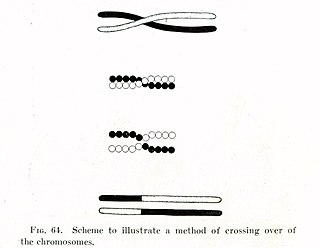
In evolutionary genetics, Muller's ratchet is a process which, in the absence of recombination, results in an accumulation of irreversible deleterious mutations. This happens because in the absence of recombination, and assuming reverse mutations are rare, offspring bear at least as much mutational load as their parents. Muller proposed this mechanism as one reason why sexual reproduction may be favored over asexual reproduction, as sexual organisms benefit from recombination and consequent elimination of deleterious mutations. The negative effect of accumulating irreversible deleterious mutations may not be prevalent in organisms which, while they reproduce asexually, also undergo other forms of recombination. This effect has also been observed in those regions of the genomes of sexual organisms that do not undergo recombination.
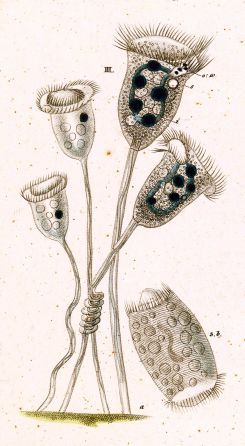
Vorticella is a genus of bell-shaped ciliates that have stalks to attach themselves to substrates. The stalks have contractile myonemes, allowing them to pull the cell body against substrates. The formation of the stalk happens after the free-swimming stage.

Brachionus is a genus of planktonic rotifers occurring in freshwater, alkaline and brackish water.

Lacrymaria is a genus of ciliates. Its best known species is the "Tear of Swan", Lacrymaria olor.
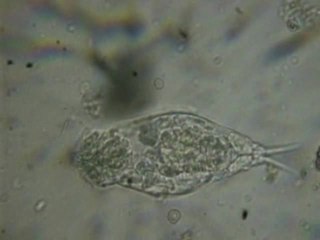
Cephalodella is a genus of rotifers in the family Notommatidae.

Filinia is a genus of rotifers in the family Trochosphaeridae.

Trichotria is a genus of rotifers belonging to the family Trichotriidae.
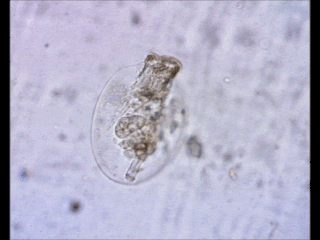
Testudinella is a genus of rotifers belonging to the family Testudinellidae.
Notommata is a genus of rotifers belonging to the family Notommatidae.

Mytilina is a genus of rotifers belonging to the family Mytilinidae.
Monommata is a genus of rotifers belonging to the family Notommatidae.

Lepadella is a genus of rotifers belonging to the family Lepadellidae. The genus has a cosmopolitan distribution
Encentrum is a genus of rotifers belonging to the family Dicranophoridae.

Colurella is a genus of rotifers belonging to the family Lepadellidae. The genus has a cosmopolitan distribution.
Dicranophorus is a genus of rotifers belonging to the family Dicranophoridae.
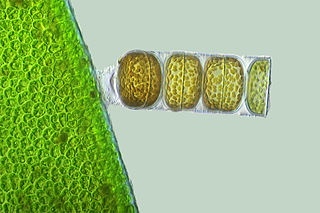
Melosira is a genus of diatoms belonging to the family Melosiraceae.

Mesostoma ehrenbergii is a species of rhabdocoel flatworms in the family Typhloplanidae.

Epiphanes is a genus of rotifers belonging to the family Epiphanidae.
Deprez Basin is a nearly circular basin on the Ingrid Christensen Coast of Princess Elizabeth Land in East Antarctica.















